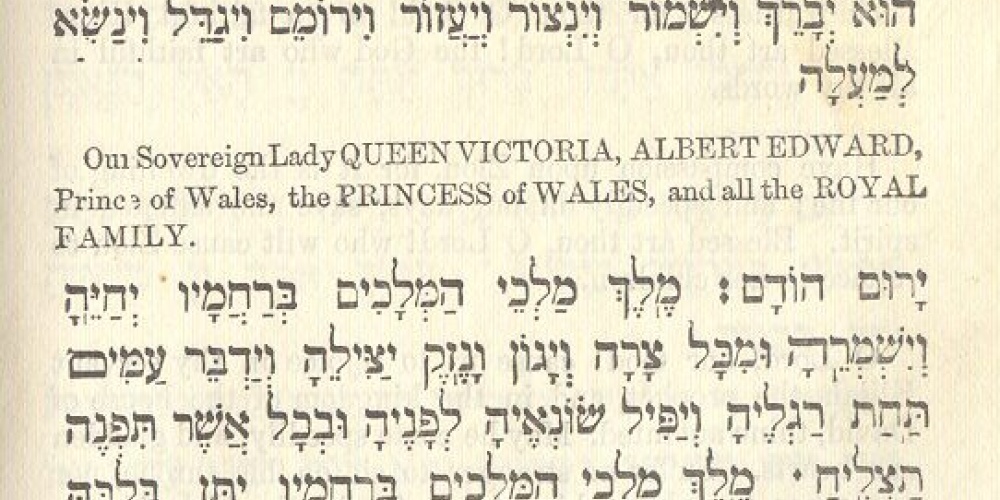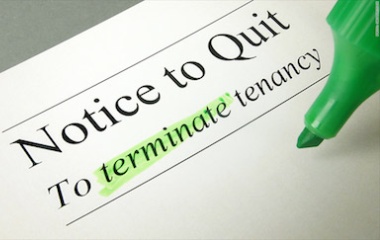
“Pray for the welfare of government for, if not fear of them, man would swallow his friend alive” (Avot 3:2). Law and order is the backbone of any society and, along with security, are the most important duties of government. When law breaks down, society is doomed to anarchy, chaos and worse.
Almost by definition, law is inflexible and thus, in certain circumstances can cause injustice. “The law pierces the mountain” (Sanhedrin 6b) unable to take into account individual circumstances that can render it harsh and unforgiving. Our Sages tried as best they could to ensure that people would not fall through the cracks that are inevitable in any legal system, trying to ensure that the law serves as a way to morally elevate man.
With their deep understanding of human nature, the Sages amended the law when necessary to help ensure the fairest possible outcome, as is their right in monetary matters. Cognizant of the fact that if mitzva observance is too onerous, people will stop doing mitzvot, the rabbis did away with the obligation of an oath for one who returns a lost object. Theoretically, we should have to take an oath that we are returning all that we found and did not pocket something for ourselves. However, as such an oath is more likely to cause one to decide it’s just not worth the trouble to return a lost object, the Sages did away with it.
Even when there is no mitzvah involved, our rabbis worked to ensure that the law enhance the smooth running of society. Masechet Bava Metzia opens with the case of “two people holding on to a garment, this one claims it is all mine and this one claims it is all mine…this one takes an oath that they own no less than half and this one takes an oath that they own no less than half” (Bava Metzia 2a). The Gemara explains that this oath is rabbinic in nature; according to Torah law the (value of) the garment should be split between the two, but “this oath is an ordinance of the Sages so that this one and that one do not go and grab something from a friend and claim it is his[1]” (Bava Metzia 3a).
“One who moves a barrel from place to place and breaks it, whether he is a shomer chinam, an unpaid bailee, or a shomer sachar, a paid bailee, he takes an oath. Rabbi Eliezer says: [Yes,] they both take an oath, but I wonder how can they can take an oath” (Bava Metzia 82b). When one moves a barrel, one must ensure that one does so without causing damage. And if one is unable to do so, he should have to pay for damages caused. Even if one were to argue that there was no negligence in breaking the barrel that would only help a shomer chinam. A shomer sachar, being paid for his services, has a higher level of responsibility, one that would obligate him to pay for the broken barrel. How, then, Rabbi Eliezer wonders, can we allow an oath that would exempt them from payment? Yet allow it we do.
“Rav Chiyya bar Abba in the name of Rav Yochanan says: This oath is a law of the rabbis, for if you do not allow an oath you will not find a person who will move a barrel for his friend from place to place” (Bava Metzia 83a). From a legal perspective, no oath should be allowed and payment for damages caused should be demanded. Yet our Sages ordained that we as a community go beyond the letter of the law and allow the guardian to swear he broke the barrel unintentionally, even if somewhat negligently.
Yet very few cases lend themselves to blanket rabbinic legislation. Generally, we can only encourage, but cannot legislate, that one give up their legal rights when fairness demands such, even if the technical law might not. Perhaps the most famous of these cases involves the wine porters of Rabba bar bar Channa who, towards the end of a hard day of work, broke the wine barrels they were transporting. Rabba bar bar Channa seized their coats as collateral for payment. While they may have dropped the barrels accidentally, that does not mean they were not negligent[2].
Nonetheless, the workers complained to Rav, who told Rabba bar bar Channa to give them back their coats. When Rabba bar bar Channa asked if the law requires such, Rav answered by quoting a teaching of Shlomo Hamelech,“so that you may walk in the way of good men” (Mishlei 2:20). Rabba bar bar Channa gave them back their coats, but that did not satisfy the workers who told Rav, “we are poor, we have worked hard all day and are in great need and we have nothing to show for our work.” Rav ordered Rabba bar bar Channa to pay his workers. When asked if this is the law, Rav quoted the second half of the verse, “and keep the path of the righteous.”
From a purely legal point of view, the poor porters had to pay Rabba bar bar Channa for the damages caused, and had the case reached a court of law – where judges may favour neither the rich nor the poor – such would have been the ruling. But this was not a court of law, but a teaching moment. Considering that the breaking of the barrels was an accident, the workers were poor and desperately needed the money, along with the fact that Rabba bar bar Channa was a wealthy wine merchant, Rav ordered him to pay the workers.
What Rav demanded went well beyond the standard requirement of lifnim meshurat hadin, of acting beyond the letter of the law. Rav quoted a verse from Mishlei about following the path of “good men” and “the righteous” but did not quote the Biblical source (Shemot 18:20) for lifnim meshurat hadin, “’and you shall teach them the statutes and the laws, and show them the way they must walk, and the work that they shall do,’ ‘that they shall do’, this [refers to] lifnim meshurat hadin” (Bava Metzia 30b).
Tosafot (Bava Metzia 26b s.v. lifnim) explains that the biblical mandate to act lifnim meshurat hadin refers to a case where one is exempt from the law but others are obligated. Tosafot gives the example of an expert moneychanger who, unlike an amateur, is not financially responsible for an honest mistake made, but reimburses the victim nonetheless; or a zaken veino lfi kevodo, where due to one’s dignified status, one need not ‘demean himself’ and return a five dollar object; however he does exactly that, showing great dignity to the other.
A second category of lifnim meshurat hadin, Tosafot notes, is when no one is obligated to act in a particular manner, but to do so requires no cash outlay. Such would be the case when one returns a lost object after one year, despite the fact that after a year, the “statute of limitations” has expired and the finder can keep the object[3].
However, when there is a large expense involved such as a barrel of wine, there is no obligation to act lifnim meshurat hadin. There is a limit to how much beyond the letter of the law we must act. Nonetheless, such is the way of those who want to be on the path of good. And don’t we all want to travel on that path?
[1] The oath is an effective deterrent only because even those willing to steal were not willing to commit perjury in a court of law. Should that no longer be the case, other solutions would need to be found.
[2] While we just learned in the Mishna that those who transport barrels are not liable for accidental damages, that refers to one who is a guardian, not to a worker, who is responsible for damages caused. Rav Yehuda is of the view that only an unpaid guardian is exempt from liability, but a paid guardian and a worker would be liable.
[3] While doing so may not require a monetary outlay, there is an opportunity cost involved, as the finder can no longer keep the object. As we have previously noted, the halacha does not follow economic theory in equating opportunity cost with actual cash outlays; much like in real life, people do distinguish between the two. Lifnim meshurat hadin behavior is expected when dealing with opportunity costs, but not necessarily for actual costs.



